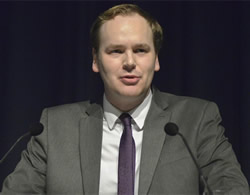 A United Kingdom Parliamentary committee is to investigate job-switching in the Public Service which members say has dogged the Government digital area for years.
A United Kingdom Parliamentary committee is to investigate job-switching in the Public Service which members say has dogged the Government digital area for years.
Chair of the Public Administration and Constitutional Affairs Committee (PACAC), William Wragg (pictured) sent a letter to the Public Service’s Chief People Officer, Rupert McNeil, requesting comprehensive details of Departments’ pay arrangements and staff movements.
It follows earlier comments by former Minister for the Cabinet Office, Lord Francis Maude reiterating concerns over inter-Departmental churn among Government workers.
Lord Maud told the PACAC there should be a clampdown on job-changes among senior responsible owners of major projects.
Moving Departments to secure a promotion, or even just a pay rise, has long been part of Public Service culture, but is recognised to exert a toll on institutional memory.
Research published two years ago identified the Government’s digital profession as an area where this problem was especially acute.
A report from the Institute for Government said digital skills were highly sought-after and there was a “Whitehall merry-go-round” with Departments poaching each other’s staff.
The Cabinet Office recently concluded that proper controls were not in place, resulting in perverse outcomes, including reduced efficiency and lower productivity.
Lord Maude had previously called for Public Servants to be banned from switching Departments unless the move was demonstrably in the interests of the Departments involved as well as the individual.
Cabinet Office transparency data, published last year, indicated that the average period of staff employment at the now-defunct Department for Exiting the European Union was just 36.5 weeks in 2018 and 2019.
The Cabinet Office itself had an average employment period of 1.5 years in 2019.
At the other end of the scale, HM Land Registry had an average employment period for staff of 18 years in 2019, although even that was a dip on figures from three years earlier, when the average time in service was 26.9 years.
London, 3 February 2021









